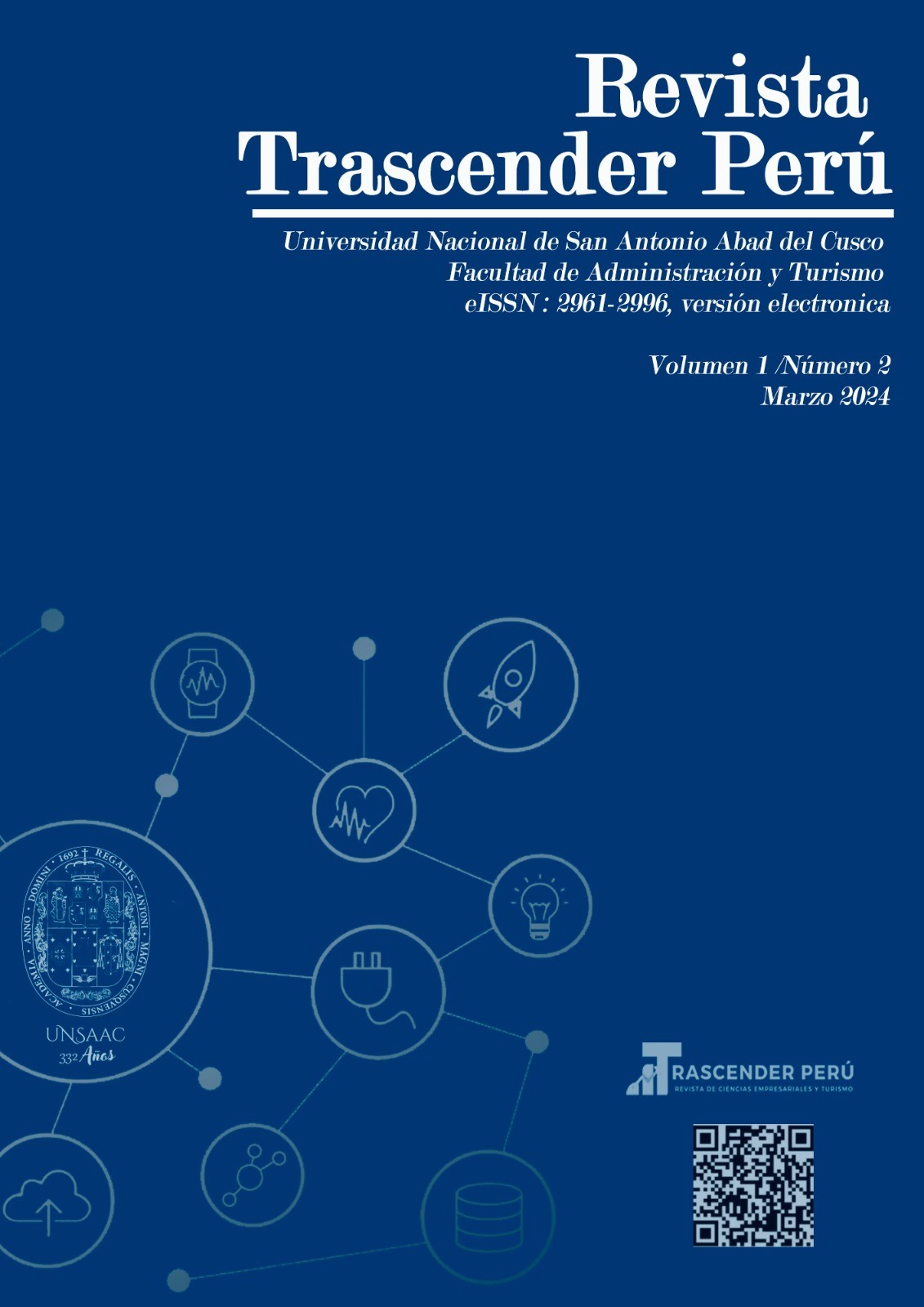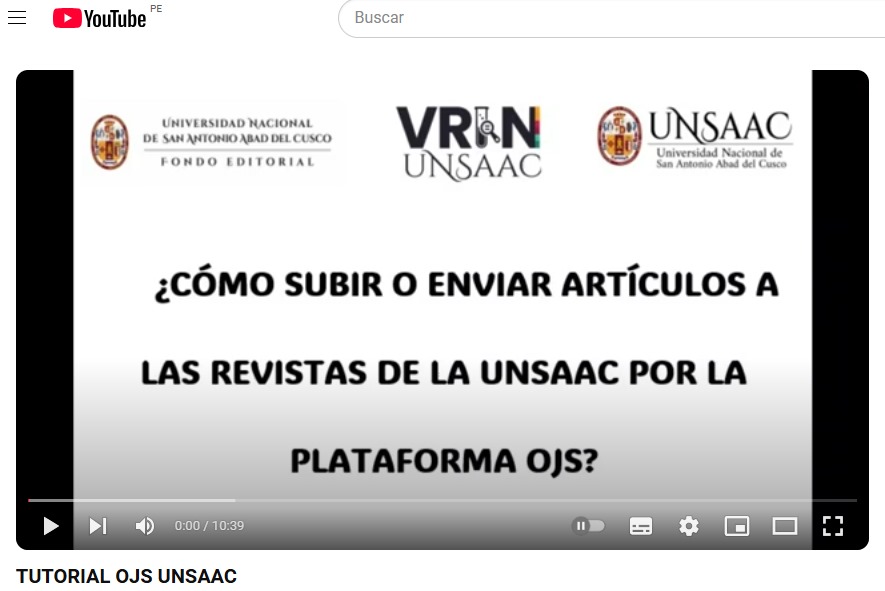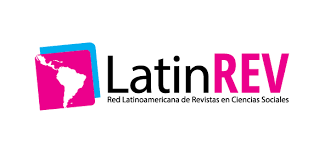Responsabilidad Social Empresarial (RSE) en el sector hotelero. Un Análisis Bibliométrico
Resumo
La Responsabilidad Social Empresarial (RSE) pretende que las empresas operen de manera ética y sostenible, contemplando no solo sus metas financieras, sino también su influencia en la sociedad y el medio ambiente. Este estudio tiene como propósito analizar la evolución del conocimiento científico de la RSE en el sector hotelero. Se realizó un minucioso análisis mediante el método bibliométrico y temático de 659 artículos revisados desde el año 2004 a octubre del 2023. Los resultados evidencian un crecimiento exponencial de producción científicas, el cual se resalta el vínculo de la RSE del sector hotelero en la implementación de estrategias competitivas, demostrando que el desarrollo eficiente de RSE se debe analizar los stakeholders, marketing sostenible, los modelos de gestión turística ético y socialmente responsable, Las futuras líneas de investigación deberían centrarse en la percepción de los stakeholders en la sostenibilidad y responsabilidad social empresarial del sector hotelero y turismo. Asimismo, se alude una línea de investigación que aborde los temas de los 17 objetivos de desarrollo sostenible presentada en la agenda 2030.
Downloads
Referências
Abbas, J. (2020). Impact of total quality management on corporate green performance through the mediating role of corporate social responsibility. Journal of Cleaner Production, 242, 1-12. https://doi.org/10.1016/j.jclepro.2019.118458
Abdou, A., Hassan, T., y El Dief, M. (2020). A Description of Green Hotel Practices and Their Role in Achieving Sustainable Development. Sustainability, 12(22), 9624. http://dx.doi.org/10.3390/su12229624
Abdulai, M., y Hinson, R. (2012). Market orientation, innovation and corporate social responsibility practices in Ghana's telecommunication sector. Social Responsibility Journal, 8(3), 327-346. https://doi.org/10.1108/17471111211247910
Acampora, A., Lucchetti, M., Merli, R., y Ali, F. (2022). The theoretical development and research methodology in green hotels research: A systematic literature review. Journal of Hospitality and Tourism Management, 51, 512–528. https://doi.org/10.1016/j.jhtm.2022.05.007
Alaminos, A. (2023). Introducción a la teoría de conjuntos difusos y sus aplicaciones en investigación social e IA (Universida).
Belmonte, L.,Garrido J., & Francisco, C. (2020). Analysis of World Research on Grafting in Horticultural Plants. HortScience, 55(1), 112–120. https://doi.org/10.21273/HORTSCI14533-19
Benavides, C. A, Quintana, C., y Marchante, M. (2014). Total quality management, corporate social responsibility and performance in the hotel industry. International Journal of Hospitality Management, 41, 77–87. http://dx.doi.org/10.1016/j.ijhm.2014.05.003
Domenech, T., Bleischwitz, R., Doranova, A., Panayotopoulos, D., y Roman, L. (2019). Mapping Industrial Symbiosis Development in Europe_ typologies of networks, characteristics, performance and contribution to the Circular Economy. Resources, Conservation and Recycling, 141, 76–98.
Espinoza, F., Huertas, K., Obando, E., y Cordova, F. (2023). Corporate social responsibility in Latin American corporations: Role and importance. Problems and Perspectives in Management, 21(2), 642–652. https://doi.org/10.21511/ppm.21(2).2023.58
Ezzahra, J. (2023). Does corporate social responsibility result in better hotel guest attitudinal and behavioral loyalty?.Heliyon, 9(8). https://doi.org/10.1016/j.heliyon.2023.e18669
Famiyeh, S. (2017). Corporate social responsibility and firm’s performance: empirical evidence. Social Responsibility Journal, 13(2), 390-406. https://doi.org/10.1108/SRJ04-2016-0049
Fernández, M. T., y Cuadrado, R. (2011). La responsabilidad social empresarial en el Sector Hotelero: revisión de la literatura científica, 28, 47–57. https://revistas.um.es/turismo/article/view/147181
Ferrada, C., Puraivan, E., y Sepulveda, M. (2021). Análisis bibliométrico sobre deserción/retención académica en el primer año de Universidad en la base de datos SCOPUS. Anales de Investigacion, 17(3), 1–22.
https://dialnet.unirioja.es/servlet/articulo?codigo=8320408
Global Reporting Initiative. (2013). Guía para la elaboración de memorias de sostenibilidad. Principios y contenidos básicos.
Gorbea, S. (2016). Una nueva perspectiva teórica de la bibliometría basada en su dimensión histórica y sus referentes temporales. Investigación Bibliotecológica: Archivonomía, Bibliotecología e Información, 30(70), 11–16. https://doi.org/10.1016/j.ibbai.2016.10.001
Gürlek, M., Düzgün, E. y Meydan Uygur, S. (2017). How does corporate social responsibility créate customer loyalty? The role of corporate image. Social Responsibility Journal. 13(3), 409-427. https://doi.org/10.1108/SRJ-10-2016-0177
Han, H.; Al-Ansi, A.; Chi, X.; Baek, H. y Lee, K.-S. (2020). Impact of Environmental CSR, Service Quality, Emotional Attachment, and Price Perception on Wordof-Mouth for Full-Service Airlines. Sustainability, 12(3974). https://doi.org/10.3390/su12103974
Ibarra, M. A., Vela, J. B., y Hernández, F. (2022). La importancia de la responsabilidad social corporativa y la gestión de la calidad total en los hoteles de México. Dirección y Organización, 76, 43–57. https://doi.org/10.37610/dyo.v0i76.617
Jalilvand, M., Khazaei Pool, J., Balouei Jamkhaneh, H. y Tabaeeian, R. (2018). Total quality management, corporate social responsibility and entrepreneurial orientation in the hotel industry. Social Responsibility Journal. 14(3), 601-618. https://doi.org/10.1108/SRJ-04-2017-0068
Jiddi, F., y Ibenrissoul, A. (2020). Mapping 20 Years of Literature on CSR in Tourism Industry: A Bibliometric Analysis. American Journal of Industrial and Business Management, 10(11), 1739–1759. https://doi.org/10.4236/ajibm.2020.1011109
Kim, Y. (2023). A study of the Integrated Model witht Norm Activation Model and Theory of Planned Behavior: Applying the Green Hotel´s Corporate Social Responsabilities. Sustainability, 15, 2-16. https://doi.org/10.3390/su15054680
Labuschagne, C., Brent, A., y Van Erck, R. (2005). Assessing the sustainability performances of industries,. Journal of Cleaner Production, 373-385.
McWilliams, A. y Siegel, D. (2011), Creating and Capturing Value: Strategic Corporate Social Responsibility, Resource-Based Theory, and Sustainable Competitive Advantage, Journal of Management, 37(5), 1480-1495.
https://doi.org/10.1177/0149206310385696
Meseguer, V., Gálvez, F. J., López, G., y Molina, V. (2021). Corporate Social Responsibility and Sustainability. A Bibliometric Analysis of Their Interrelations. Sustainability, 13(4), 1636. https://doi.org/10.3390/su13041636
Mobin, M, Hassan, M., Khalid, A. y Abdul-Rahim, R. (2022), Pandemia de COVID-19 y dinámica de riesgo de los mercados financieros en los países del G7, Revista Internacional de Gestión y Finanzas Islámicas y de Oriente Medio, 15(2), 461-478. https://doi.org/10.1108/IMEFM-09-2021-0358
Naciones Unidas (2018). The Sustainable Development Goals Report 2017; Publicación de las Naciones Unidas: Nueva York, NY, EE. UU., 2017.
Organization Mundial del Turismo (OMT) (2020), Guiding Tourism's Recovery.
Rahman, M., Khudri, M., Kamran, M. y Butt, P. (2022), A note on the relationship between COVID-19 and stock market return: evidence from South Asia, Revista Internacional de Finanzas Islámicas y de Medio Oriente y Gestión, 15(2), 359-371. https://doi.org/10.1108/IMEFM-03-2021-0124
Reyes, A., Saura, J. R., y Thomas, S. B. (2020). Exploring key indicators of social identity in the #MeToo era: Using discourse analysis in UGC. International Journal of Information Management, 54, 102129. https://doi.org/10.1016/j.ijinfomgt.2020.102129
Salazar, H., y Pinzón, S. Y. (2023). Eco-innovación y Responsabilidad Social Empresarial: Un estudio bibliométrico de la relación de estos constructos. Scientia et PRAXIS, 3(05), 34–59. https://doi.org/10.55965/setp.3.05.a2
Tsai, H., Tsang, N., y Cheng, S. K. Y. (2012). Hotel employees’ perceptions on corporate social responsibility: The case of Hong Kong. International Journal of Hospitality Management, 31(4), 1143–1154. https://doi.org/10.1016/j.ijhm.2012.02.002
Tsou, Y.-H., Huang, y.-F., Liu, S.-C., y Do, M.-H. (2021). The Effects of Total Quality Management and Corporate Social Responsibility on Firm Performance: A Future Research Agenda. The Journal of Asian Finance, Economics and Business, 8(4), 277–287. https://doi.org/10.13106/jafeb.2021.vol8.no4.0277
Van, N. J., y Waltman, L. (2007). Bibliometric Mapping of the computational intelligence field. International Journal of Uncertainty, Fuzziness and KnowledgeBased Systems,15(05), 625–645. https://doi.org/10.1142/S0218488507004911
World Business Council for Sustainable Development (2002). El caso empresarial para el desarrollo sostenible. https://www.virtualpro.co/biblioteca/el-caso-empresarial-parael-desarrollo-sostenible
Zhang, L., y Eichmann, N. (2019). Mapping the Scholarly Literature Found in Scopus on “Research Data Management”: A Bibliometric and Data Visualization Approach. Journal of Librarianship and Scholarly Communication, 7(1). https://doi.org/10.7710/2162-3309.2266
Copyright (c) 2024 Silvia Quispe Gayona, Mijail Wilbert García Puelles

This work is licensed under a Creative Commons Attribution 4.0 International License.
Derechos de autor TRASCENDER PERÚ
Esta obra está bajo la licencia Creative Commons Reconocimiento CCBY 4.0 Internacional
Usted es libre de:
- Compartir: Copiar y redistribuir el material en cualquier medio o formato para cualquier propósito, incluso comercialmente.
- Adaptar: Remezclar, transformar y construir a partir del material para cualquier propósito, incluso comercialmente.



.png)






1.jpg)
.jpg)
.jpg)
.jpg)


